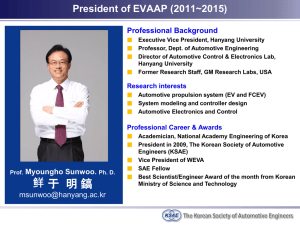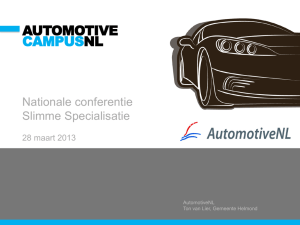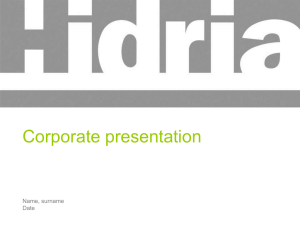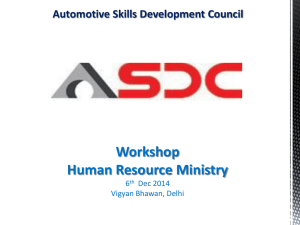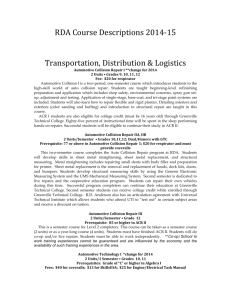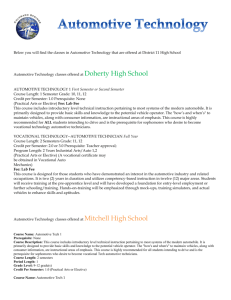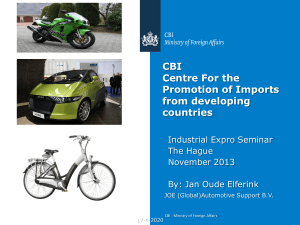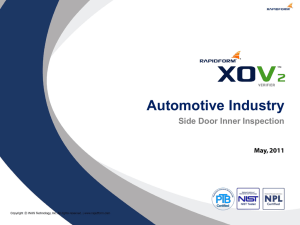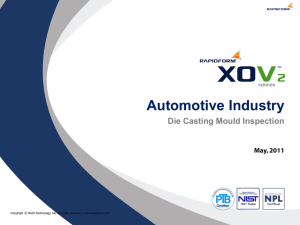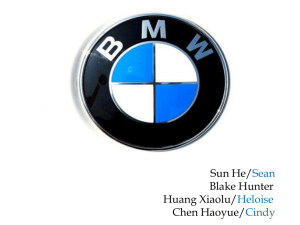Industrial Technology at OEHS - Community Unit School District 308
advertisement
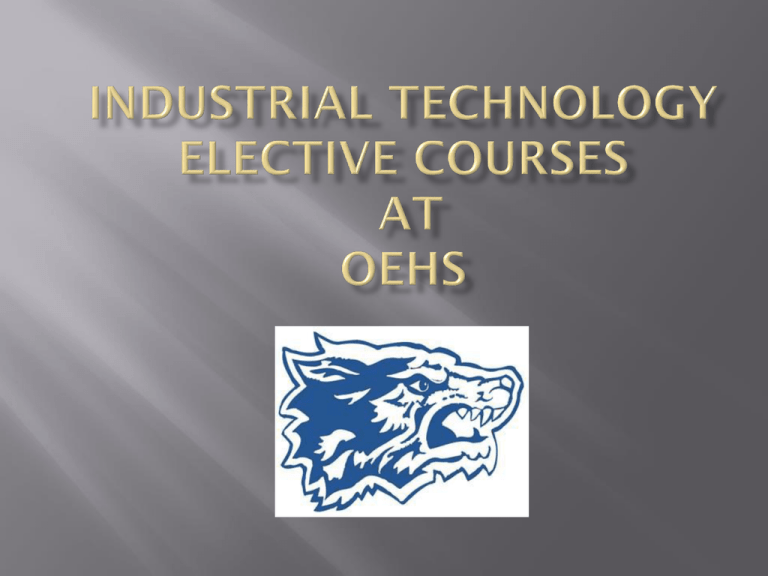
At OEHS, we offer a number of different programs in the Industrial Technology (IT) area. Automotive Technology Cabinetmaking/Woodworking CAD and Design Project Lead The Way- Pre-Engineering Electronics Our programs are designed to give students career and technical preparation for entry into the world of work or secondary education, as well as real world employability skills. Our IT programs at OEHS are credit classes that can fit into any elective spot in a student’s schedule. We offer full credit classes (year long or blocked in a semester) and ½ credit classes (semester long) to allow students the ability to fit their desired classes into their schedules. Select classes also satisfy core class requirements, Dual Credit (College Credit), or hold AP status. We invite you to attend our IT open house at OEHS on Wednesday Dec. 11th. The event will take place in the vocational annex at OEHS from 6pm-8pm. Parents, students, and all community members are invited to come see our facilities, talk with our staff, and see current students demonstrating skills from classes and displaying projects. Our industrial technology staff at OEHS are highly skilled teachers that specialize in their content area. Each staff member attends professional development update training each year to ensure they are giving students the best and most relevant educational experience we can. Automotive Technology at OEHS provides students with the foundations of the mechanical automotive field. Our program is based on hands-on live work in a shop environment. We have a 5 bay service shop, and an automotive classroom with an engine lab. This provides students with real world application while teaching them critical thinking and problem solving skills. Our facility is supplied with industry standard tools and equipment for students to gain experience with. Many of our students obtain employment, internships, or go on to secondary education in the automotive field. Students will also gain a few industry recognized certifications while in the program. We offer 4 automotive classes for students of all grade levels. Introduction to Automotive Technology Automotive Engine Service Automotive Electrical and Diagnostic Systems Automotive Service Operations After taking Introduction to Automotive Technology, students are able to take any class in any order to suit their schedule, interests, or needs. Introduction to Automotive Technology is a prerequisite for all other automotive classes. It is a ½ credit class (1 semester) In this class students will learn basic automotive maintenance, safety, shop operations, tools, and measurement. The majority of the shop work includes vehicle safety inspections, basic maintenance, fluid changes, and tire work. Engine Service is a 1 credit class that is year long. In Engine Service, the student will learn theory and operation of modern engines. Students will also learn how to diagnose engine problems on cars. Each student will rebuild a complete engine in class as well as work on engines in cars. Automotive Electrical and Diagnostic Systems is a 1 credit class that is year long. In this class students will learn basic electricity, wiring diagrams, vehicle electrical systems, and modern engine and vehicle computer control systems. Students will learn to work on these computer systems with industry standard current scan tools and computers. This class will give students the same diagnostic and electrical skills that current technicians have and are using in the field today. Automotive Service Operations is a 1 credit class that is 1 semester. It is a blocked class which means it will take up two periods per day. In this class students will work on tires, brakes, steering systems, suspension, vehicle maintenance, and basic service. This class is run like a full service shop and gives students the mechanical skills to work on vehicles. This class is also a Dual Credit class. Students can earn college credit through Waubonsee Community College for taking this class and passing with a B or higher grade. Woods I is a one semester, half credit class. Students learn the operation of many woodworking machines including the jointer, table saw, band saw, and miter saw. This class also uses hand-held tools like drills and routers. Tool and machinery skills are practiced while building projects like tables, mirror frames and small cabinets. Finishing techniques are also used to create professional looking furniture. “Woods II” is a one credit class that is offered one period all year, or one semester as a blocked class. Students choose a project they can use in their own home. Typical projects include desks, entertainment centers and other cabinets. Raised panel doors and drawers are introduced. “Advanced Woods” is also a one credit class offered one period all year, or one semester as a blocked class. Students begin the class designing their own cabinetry projects. Students often choose to customize furniture with specialty hardware, glass doors or lighting. Problem solving becomes more independent with instructor guidance. Introduction to Technical & Computer Aided Drafting is a 1 semester, half credit class. This introduction course works in both board drafting & dimensioning, as well as computer aided drafting using the most current CAD software! Students will learn to create mechanical multi-view drawings, including section views & auxiliary views, necessary for industry. Students will gain CAD experience using the newest version of Autodesk software, including AutoCAD and Inventor! Honors Engineering Courses This first course in the Project Lead the Way Engineering curriculum provides a foundation and is a prerequisite for all subsequent advanced PLTW course work. IED is a teaches skills necessary for innovation and engineering documentation using an engineering design process. The course includes the basics of measuring, sketching and drawing, 3-dimensional CAD modeling, prototyping, and applied mathematics. IED is a problem-based learning course, where students discover solutions to real world problems and develop their engineering skills through hands-on activities and products! POE is a challenging, broad-based survey course that introduces students to the fundamental concepts of applied mathematics in engineering. Students design and construct projects in the fields of mechanical and electrical engineering. This course is similar to a first semester college course and is an important course of study for a student exploring a career in any field of engineering. The course of study includes: Mechanisms Energy Sources Energy Applications Machine Control Fluid Power Statics Material Properties Material Testing Statistics Kinematics DE is a course in applied logic that explores the application of electronic circuits and devices. Students will be introduced to digital circuits that are commonly found in video games, watches, calculators, digital cameras, and thousands of other devices. Throughout this course, students will work to design, simulate, program, prototype, solder, and test various forms of digital circuitry! CEA is a course that provides an overview of the fields of civil engineering and architecture. Students use state-of-the-art software to solve real world problems and communicate solutions through hands-on activities and projects. This course covers topics such as: roles of civil engineers and architects, project planning, structural design, soil testing, surveying and residential/commercial project documentation & presentation. EDD is an engineering research course in which students work to research, design and construct a solution to an openended engineering problem of their choice. Students apply principles developed in the preceding PLTW courses and are guided by a professional mentor. They must present progress reports, create a set of working drawings, build a prototype, submit a final written report, and defend their solutions to a panel of outside reviewers at the end of the school year. This course is similar to a senior research college course! Guy Tiberio Automotive Technology gtiberio1220@oswego308.org 630-636-2311 Ben Niles Cabinetmaking/Woods bniles1125@oswego308.org 630-636-2310 Gina Korczak PLTW/Engineering/CAD gkorczak@oswego308.org 630-636-2354 Mike Dutton PLTW/Engineering mdutton0307@oswego308.org 630-636-2395
